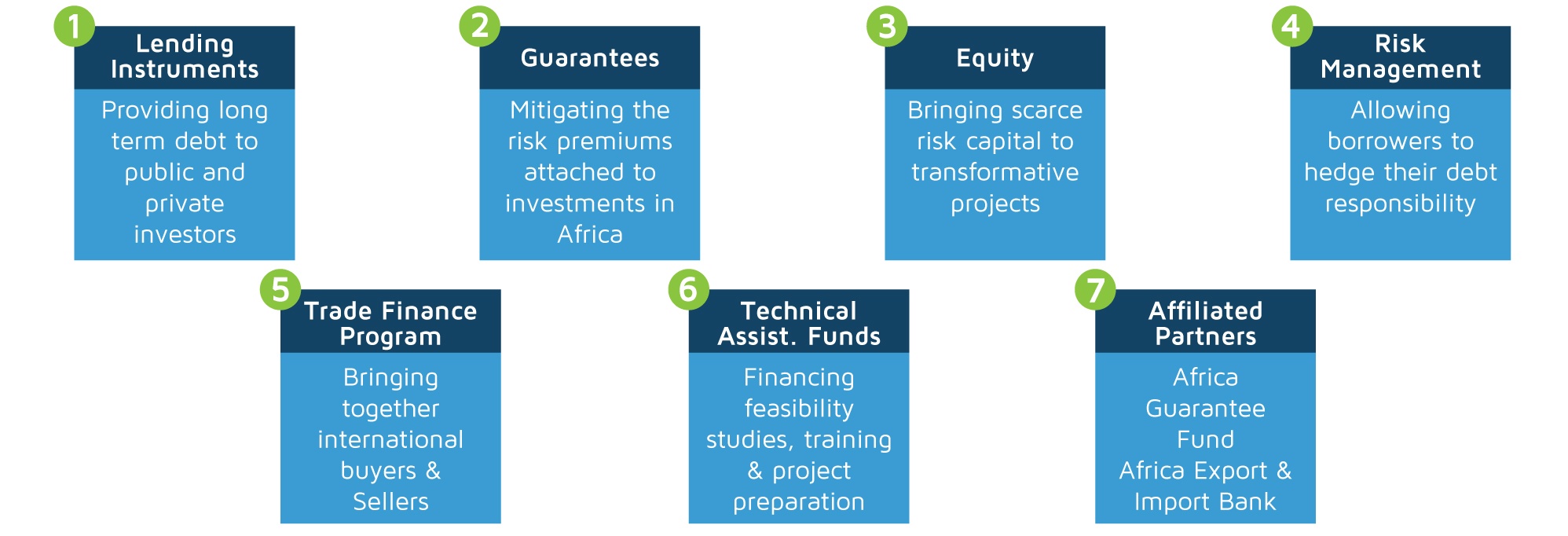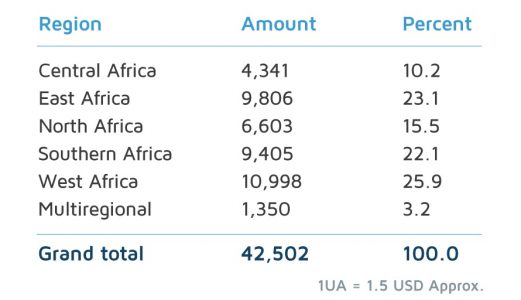Overview
The African Development Bank (AfDB) is Africa’s premier development institution that focuses on reducing poverty and improving overall wellbeing on the continent. Since its inception, the AfDB has aimed to foster sustainable economic development and spur social progress across its regional member countries. Taking into consideration the myriad of funding opportunities as well as the difficulties that parties may encounter when preparing for forthcoming bids, DevelopmentAid hosted a webinar with Ashraf Ayad, the Lead Procurement Policy Officer at the AfDB, to discuss the Bank’s procurement policy, investment strategy and the best practices for preparing successful proposals.
Our most recent event is one in a series of webinars organized by DevelopmentAid where the representatives of international financial organizations introduce their procurement policies and provide tips on how to be successful in landing projects funded by them. Some of the topics previously discussed in these settings refer to “How to do Business with USAID”, “How to win projects funded by Multilateral Development Banks” and “How to Write Successful Technical Proposals”.
Ashraf began his presentation with a short introduction to AfDB and its mission. He stated that the African Development Bank (ADB), African Development Fund (ADF), and the Nigeria Trust Fund (NTF) are the institutions that make up the AfDB group. Currently, all 54 African countries are regional members (RMC) of the AfDB, and another 27 non-African countries such as Canada, Japan, and China are non-regional members (non-RMC). The Bank’s major objective is to support sustainable economic development and social progress for its regional member countries and it does so by mobilizing and allocating resources for investment and by providing policy advice and technical assistance to support development efforts.
Fig. 1. Financial products offered by the AfDB

AfDB Portfolio
The largest share (45%) of the AfDB portfolio is dedicated to supporting projects in the domain of infrastructure. Ashraf mentioned that this decision is motivated by the wide financial gap in this sector estimated to be somewhere between US$70 billion and US $100 billion every year. For 2020, the AfDB reported a portfolio of almost US $68.25 billion with the majority of operations being focused on Western, Eastern, and Southern Africa.
Fig. 2. AfDB portfolio by regions, 2020

AfDB Procurement Policy
During the presentation, Ashraf provided a thorough description of the AfDB’ procurement framework which is designed to support Bank-financed operations and enhance the procurement systems of regional member countries to obtain optimal Value for Money based on mutually supporting and reinforcing the principles of economy, efficiency, effectiveness, and equity.
Eligibility Criteria
If a specific project is initiated by the ADB or NTF, only bidders (including subcontractors) from the Bank’s regional member countries are allowed to participate. For contracts financed via the ADF, then universal procurement is applicable and contractors from other countries can also bid. In some situations, the AfDB board may decide to wave some of its procurement rules. This can apply in the following circumstances:
- For contracts initiated and co-financed jointly by ADB-ADF
- Reliance on a borrower procurement system or a third party
- In cases when projects were initiated in common with other development institutions (e.g., EIB, EBRD) based on mutual reliance agreements
- Projects relating to emergency relief assistance
- Case by case basis
Why Work with the AfDB?
According to the Organization for Economic Cooperation and Development (OECD), public procurement in Africa accounts for 15% of the continent’s GDP. However, Ashraf Ayad said, “the OECD has alerted us that between 20 to 25% of public procurement [funds] are lost due to the inefficiency of the public procurement systems in the [African] countries and more importantly to corruption.”
On the other hand, the AfDB’s procurement policy is designed to not only ensure compliance but also to act as a tool for building and developing domestic public procurement systems to minimize the impact of corruption and inefficiency.
Some of the reasons to collaborate with the AfDB are:
- Opportunities to work in Africa
- Billions of dollars’ worth of business every year
- Equal opportunity and fair treatment for all eligible parties
- Certainty of process and high standards of integrity
- High certainty of payment
- Variety of contract sizes that provide opportunities suitable for SMEs and large multinational organizations
- Wide variety of projects across multiple sectors
Tips for preparing for upcoming bids
Towards the end of the presentation, Ashraf offered several tips to take into consideration before submitting a proposal:
- It is important to make sure that the bid is complete before submitting it
- The submitted bid should not be accompanied by any conditions (e.g., we can perform this if we get that). The bid has to follow the official submission guidelines exactly
- The amount, validity, and the text of bid security should be correct
- Any conflict of interest has to be disclosed to the executing agency
- The bid documents have to be signed by authorized persons and have a power of attorney submitted to prove that
- In the case of a consortia, a joint venture agreement (or letter of intent) must be enclosed
- Only relevant references should be enclosed
- All discounts should be mentioned in the covering letter or the appropriate place as specified in the bidding document
- Correct marking of envelopes should be done appropriately (e.g., withdrawal, modification, submission).
For those who did not have the opportunity to join us for this online event, a link to the recorded version can be found here. The presentation materials used during the webinar can also be requested at i.ilasco@developmentaid.org.
We invite you to join us for our next webinar on “The Role of Artificial Intelligence in Solving Current Development Challenges: Opportunities and Risks” that will take place on 2 September 2021 at 3 pm (Brussels Time)/9 am (Washington DC Time). Our speakers, Zaki Khoury (Senior Digital Development Specialist at the World Bank) and Katya Klinova (Head of AI, Labor, and the Economy Programs at the Partnership on AI) will present their take on the role of AI in international development.
DevelopmentAid is the leading provider of business intelligence and recruitment tools designed to assist those active in the development sector. Join today and gain access to exclusive information on the full array of upcoming funding opportunities from the African Development Bank and other 180 international donors.
